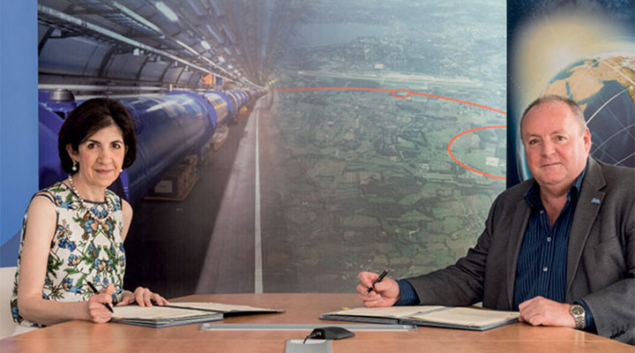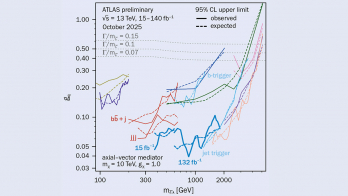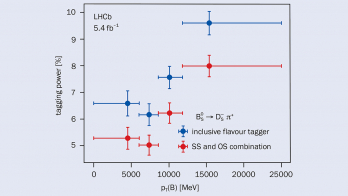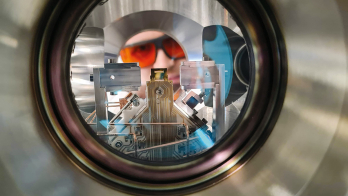

Image credit: S Bennett/CERN.
On 14 July, the Square Kilometre Array (SKA) organisation signed an agreement with CERN to formalize their collaboration in the area of extreme-scale computing. The agreement will address the challenges of “exascale” computing and data storage, with the SKA and the Large Hadron Collider (LHC) to generate an overwhelming volume of data in the coming years.
When completed, SKA will be the world’s largest radio telescope with a total collecting area of more than 1 km2 using thousands of high-frequency dishes and many more low- and mid-frequency aperture array telescopes distributed across Africa, Australia and the UK. Phase 1 of the project, representing approximately 10% of the final array, will generate around 300 PB of data every year – 50% more than has been collected by the LHC experiments in the last seven years. As is the case at CERN, SKA data will be analysed by scientific collaborations distributed across the planet. The acquisition, storage, management, distribution and analysis of such volumes of scientific data is a major technological challenge.
“Both CERN and SKA are and will be pushing the limits of what is possible technologically, and by working together and with industry, we are ensuring that we are ready to make the most of this upcoming data and computing surge,”says SKA director-general Philip Diamond.
CERN and SKA have agreed to hold regular meetings to discuss the strategic direction of their collaborations, and develop demonstrator projects or prototypes to investigate concepts for managing and analysing exascale data sets in a globally distributed environment. “The LHC computing demands are tackled by the Worldwide LHC computing grid, which employs more than half a million computing cores around the globe interconnected by a powerful network,” says CERN’s director of research and computing Eckhard Elsen. “As our demands increase with the planned intensity upgrade of the LHC, we want to expand this concept by using common ideas and infrastructure into a scientific cloud. SKA will be an ideal partner in this endeavour.”







